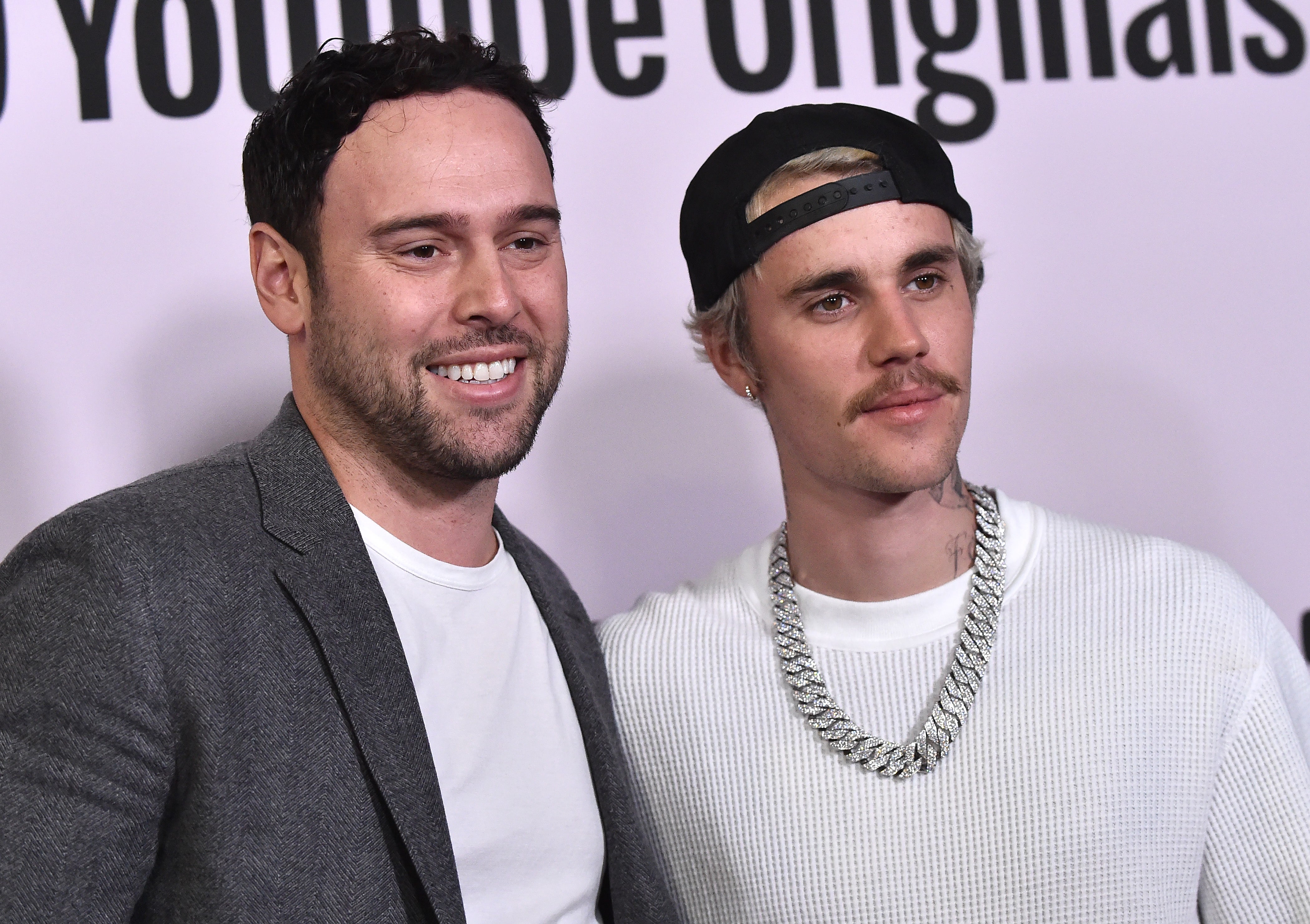Scooter Braun cut his teeth as a party promoter in Atlanta before signing rising star Justin Bieber
and setting off a meteoric rise. Now as megastars like Ariana Grande appear to flee his roster,
Sheila Flynn looks back at the media mogul’s journey from night clubs to boardrooms
In 2006, two years before he signed Justin Bieber and 12 years before Georgia implemented hands-
free phone laws for motorists, Scooter Braun was juggling multiple cellular devices from behind the
wheel of a purple Mercedes in Atlanta. The 23-year-old was fielding calls from venues and celebrity
publicists, having forged a reputation for himself as a well-connected party promoter – an image he
was trying to shed in front of the local reporter who was in the car profiling him. Then Braun was
pulled over and ticketed for not wearing his seatbelt.

Scooter Braun clients have included Justin Bieber, Ariana Grande, Kanye West, Demi Lovato, and J Balvin (Getty)
Braun had bought the Mercedes in an example of “faking it til you make it,” Ludacris’ longtime manager, Chaka Zulu, told the same reporter for that 2006 profile in Creative Loafing. It seemed to do the trick. Braun was well on his way to making it; within a few short years, he’d signed Justin Bieber and launched that subsequent career machine, soon branching out into other media, businesses and investments as his stable of artists expanded to include other megastars such as Ariana Grande and Demi Lovato, whom he signed in 2013 and 2019, respectively.
Seventeen years later, many of those big names are fleeing Braun’s management umbrella (and Chaka Zulu, in a completely unrelated set of events, was charged last September with murder). The music industry is aflutter over what exactly is going on at Braun headquarters, an empire founded by a college dropout from Connecticut who had seemed, for years, to be nothing short of a wunderkind.
Born Scott Samuel Braun, the music mogul came from money. The son of an orthodontist mother and dentist father, he was raised in a wealthy family with two siblings in Greenwich, Connecticut. His affluent background, however, was something he tried to distance himself from early in his career. He told people he was from Queens.
His grandparents were Holocaust survivors. “I grew up with these stories that tomorrow someone’s going to come and take it all away. From the day I was born, and these stories of never again, it’s on you, be strong, you know, don’t allow this to happen again,” he told NPR’s Jay Williams last year; the two have known each other since they played basketball together as teens. “So I was almost raised with this idea that they’re coming, and I have to be prepared, you know?”
Braun was always prepared, and he always had drive. As well as playing basketball at Greenwich High School, he was also class president. After graduating, he attended the prestigious Emory University – where he picked up the nickname “Scooter” and began letting his entrepreneurial spirit run loose. “I was trying to create a new identity,” he told Williams. “I was trying to create something new that I felt was strong enough for the world that I was entering. So I created this kind of alter ego, and I became a very big college party promoter. I first sold fake IDs, which I think all our friends got from me. Then I became a kind of a party promoter [even though I had] never been to a club before I got to college. And then I got approached by this young rapper and his manager to help them out – that rapper was Ludacris – with promoting their music at my parties.”
From there, Braun became a well-known and connected player within Atlanta’s thriving Noughties rap and R&B scene. He was “ubiquitous”, according to a 2012 New Yorker profile. Ciara referred to him as her “big brother” and Lil Jon called him “the white Puff Daddy”. Braun had become “an all-purpose celebrity fixer, arranging parties for ‘Sync, Britney Spears and Kevin Federline, Ludacris, Shaquille O’Neal”. Heavyweight producer Jermaine Dupri turned up to one of Braun’s events and offered him a job at the record label So So Def (home to artists like Usher, Bow Wow and TLC) telling the young entrepreneur he had more potential than “just these parties”.
Braun told NPR that he ended up on academic probation at Emory because he “was missing so much class flying around the country with Jermaine and writing these marketing plans”. The college dean called the wayward student into a meeting and told him he had a “one in a billion” chance of becoming an entrepreneur like philanthropist Robert W Woodruff, the famed former head of Coca-Cola. Braun dropped out.

Within a year of working at So So Def Records, he became the label’s executive director of marketing. Braun, however, was later fired “after a dispute over the direction of the label,” The New Yorker reported. During a period of career uncertainty, Braun remained ambitious – and creative. The publication recalled how Braun had called up Pontiac pretending to be a writer for a college newspaper working on a story about the company’s marketing strategy. “The next day, armed with names of some Pontiac executives, he cold-called them and lined up a multimillion-dollar endorsement deal for Ludacris,” recalled the publication.